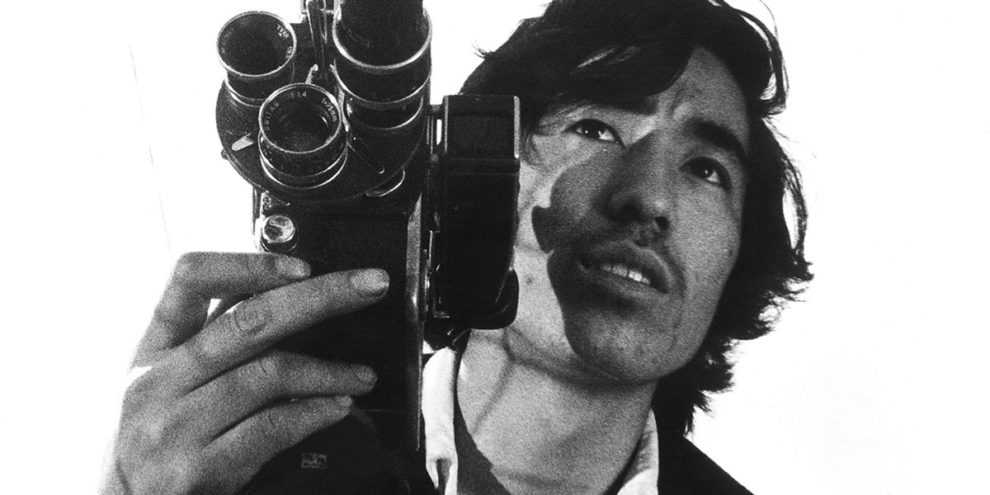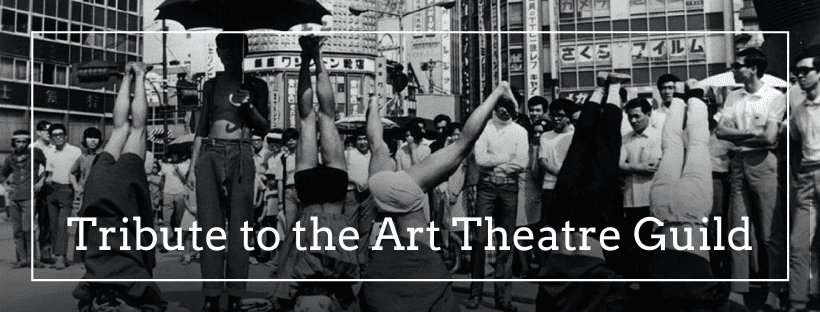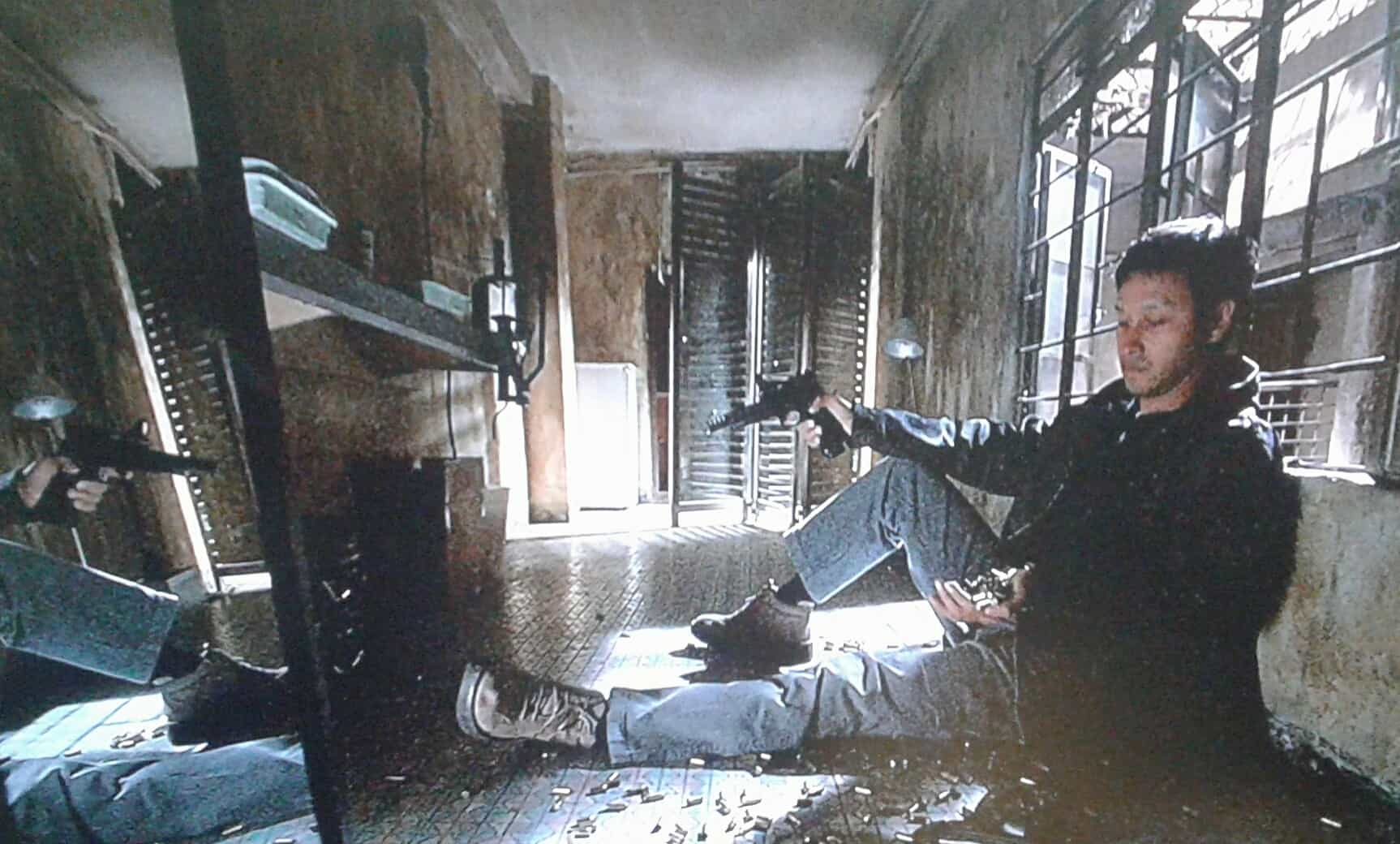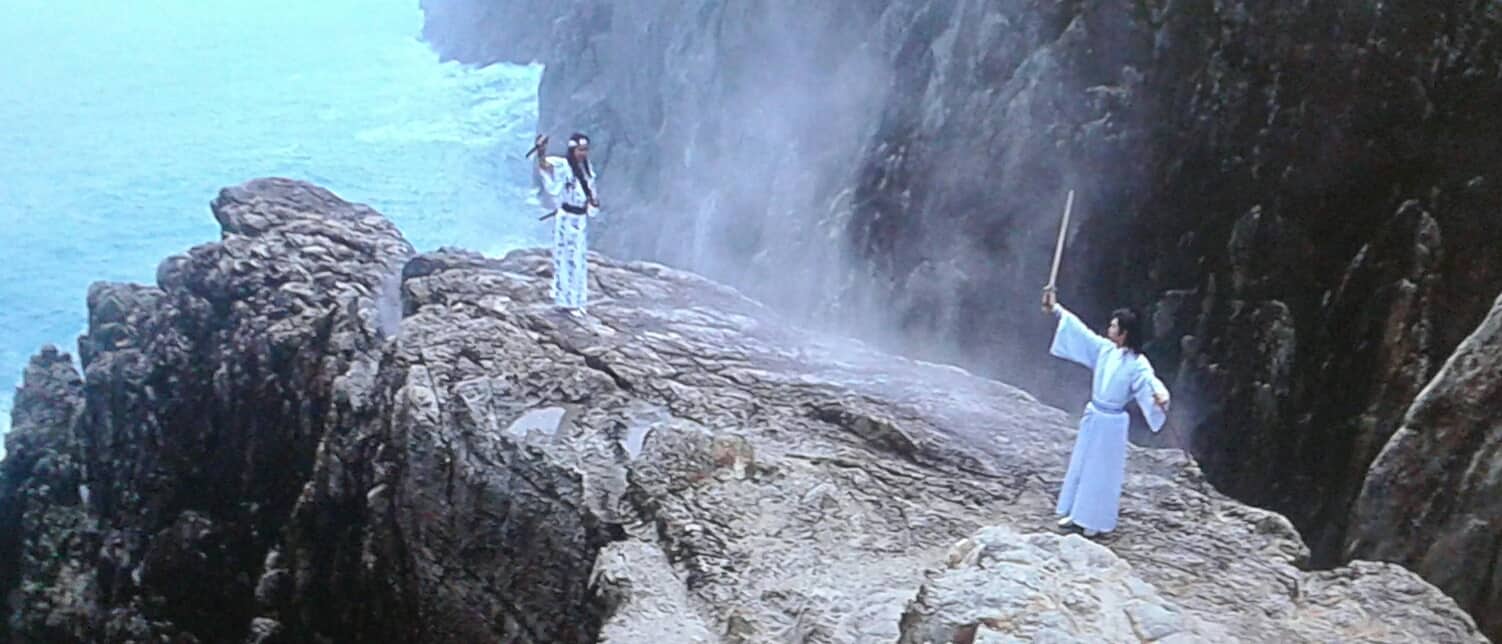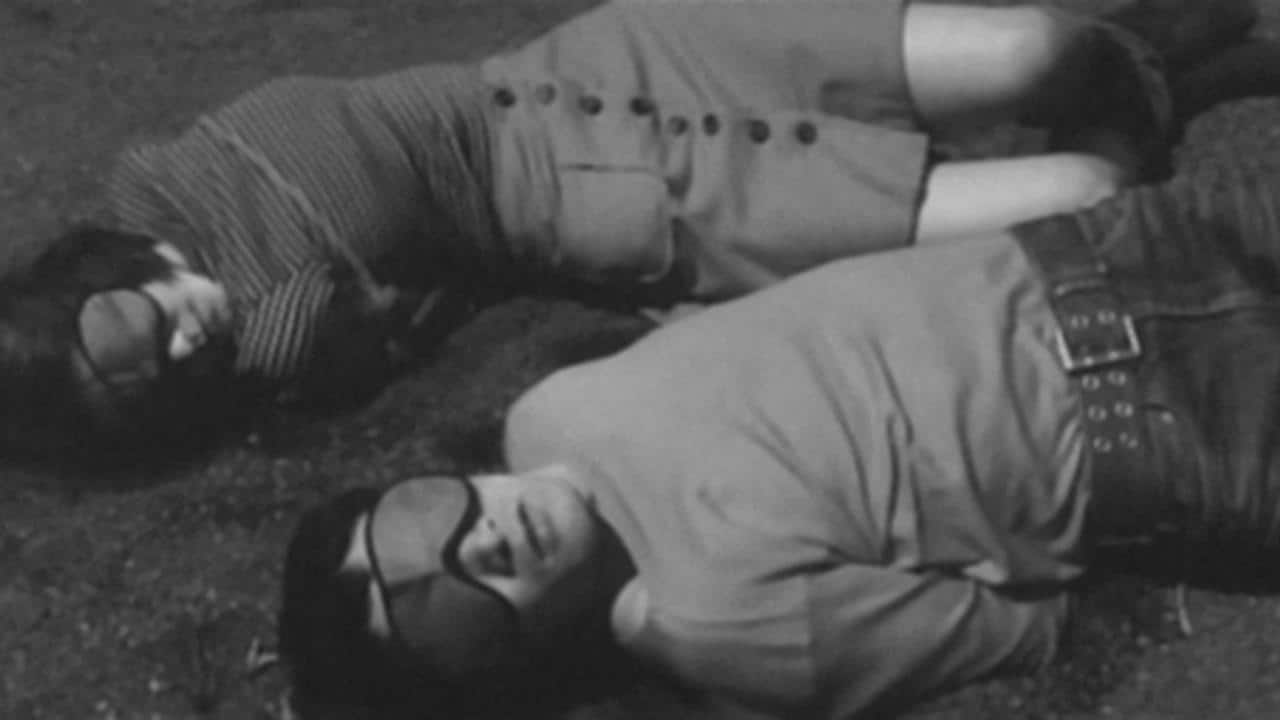After over a decade of directing features about the student protests in his home country, about the post-war generation and how these tumultuous times have shaped the nation, Nagisa Oshima set out to direct a new chapter in a movie about the status of the artist within this historical and social context. In “The Man Who Left His Will on Film”, he follows a similar approach as in “Diary of a Shinjuku Thief” when it comes to portraying the struggles of the time, as well as the way a filmmaker might react to the onslaught of images presented in front of him or her, whether the act of filming itself can be regarded a political statement or if neutrality is really an option for a person who should also keep a certain distance towards its subject.
While filming on a street in Tokyo, student Motoki (Kazuo Goto) fights with his friend over who is going to hold the camera, which descends into a heated argument, resulting in him chasing his cameraman through the streets. Eventually he loses him, and when he finds him again, he is standing on top of a building and finally jumps off, with the camera, which Motoki tries to get to, but fails as he is arrested by the police. After being released, he returns to his friends, all activists themselves, who are quite confused about Motoki's statement of the suicide, but are outraged about the authority confiscating the footage along with the camera, one of the few they have.
As his friends contemplate on how to protest the action of the police, he tries his beat to at least convince Yasuko (Emiko Iwasaki) about her boyfriend's death, but seemingly to no avail. However, after the arrival of the last film made by the deceased, the first presentation of the footage turns out to be disastrous, with the students disappointed and angry about the endless images of landscapes, streets and skylines. With the help of Yasuko, Motoki attempts to not only make some sense of the mysterious film, he also tries to convince her of what he experienced and saw.
Perhaps a much more fitting title to Oshima's feature would have been its literal translation “Secret Story of the Period after the Tokyo War” for many reasons. The conflict or war, is one which takes places on two fronts, in the minds of people and the actual streets, evident in the footage of the student protests throughout the feature. At the same time, the protagonist seems at a loss, considering his friends do not share his opinion about how the events leading to his arrest unfolded, thus rejecting the notion of their friend's suicide. The image itself, Motoki's account, which also becomes the audience's memory in a way, cannot be trusted, which establishes a rather upsetting undertone within the feature itself, as truth is subjective and experiences cannot be trusted anymore.
Similar to Oshima's other features, there is a double layer attached to the visuals, which represent the omnipresent concept of oppression within society. Following Masachi Adachi's notion of a landscape reflecting the image of society's power, the “film in film” shows a montage of landscapes representing typical everyday routines and events. The lack of action upsets the students, and haunts Motoki as well as Endo, making them want to recapture what has been filmed by meticulously searching for the locations. In a rather bitter example of irony, Oshima seems to emphasize how the most obvious fact is hidden from our eyes, how oppression has become normal and invisible, but inevitably changes the lives of the main characters.
In conclusion, “The Man Who Left His Will on Film” is an experimental feature about (hidden) oppression and the problematic notion of objective truth. Nagisa Oshima directs a feature just as cryptic upon its first watch like the footage of landscapes in the film, but which may spark a moment of revelation within its viewer eventually.


